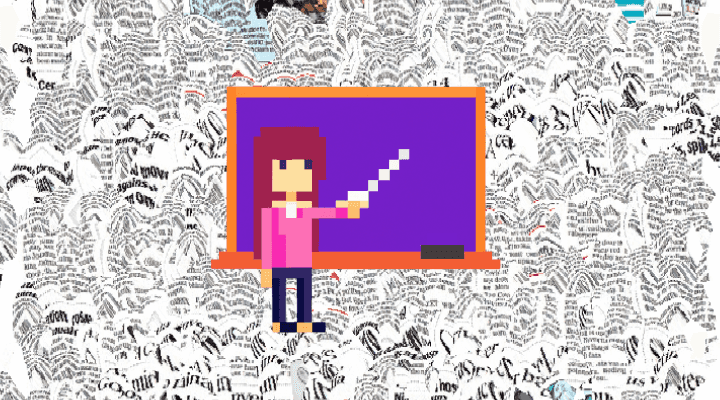Media Literacy in Classrooms - Insights from Instructors
Tags:
Project:
Media literacy is an essential skill in the digital age, empowering individuals to critically analyze and navigate the vast ocean of information that bombards us daily. To understand the challenges faced by media literacy instructors in diverse classroom settings, we recently interviewed passionate educators dedicated to enhancing media literacy among their students. Through these insightful conversations, we gained valuable insights into the hurdles they encounter and the innovative approaches they employ to foster media literacy.

Meet the Instructors
1. Antara Bose (The Viral Company) is a media literacy educator based in Jharkhand, conducting workshops for both urban and rural audiences. Her workshop locations range from Rotary Clubs and Alliance Clubs, as well as villages and slums.
Challenges Identified : Antara believes there is a need to make the content relevant to the classroom participants. She said that in rural areas and slum, issues of livelihood and sustenance are more relevant so media literacy workshops need to customize content to interest them. She also spoke about the differing levels of patience in the audience. Students might put up with long classes but house wives and working professionals won't.
Classroom Activities: Antara employs interactive approaches such as media literacy quizzes using platforms like Kahoot. She also leverages visual aids, encouraging participants to come on stage and participate actively in discussions.
2. Habeeb Rahman (Fact-checker and Researcher) teaches undergraduate and graduate students at Factlab an initiative by Calicut University, and also conducts workshops for the general audience, including rural villages and Self-Help Groups (SHGs).
Challenges Identified: Habeeb's pain point is the infrastructure - lack of internet connectivity and low bandwidth in some classrooms. He's overcome these by meticulously preparing and downloading relevant content as a backup. He might also sometimes carry along his own projector if he knows the workshop site doesn't have one.
Classroom Activities: Habeeb employs practical demos of tools like Google Lens, inVid etc. An activity he does with older people is to show them headlines and ask them to say if its news or opinion. He finds that younger participants react well to activities with visual news and information. He also encourages group discussions and utilizes Kahoot quizzes for quick assessments.
Challenges to Solve
Each instructor faces distinct challenges and requirements based on their target audience and the technological resources available.
In all the instructors' classrooms, smartphones are widely available, even in rural settings. However, the tech literacy of the participants is varied, with some limited to using specific apps like WhatsApp, lacking a deeper understanding of browsing and searching. Additionally, bandwidth and internet connectivity present bottlenecks in utilizing online resources and interactive platforms effectively.
Both instructors spoke about their efforts in finding topics of interest to the audience and customising their lessons to interest them. This emphasizes the need to iterate on the content itself with the audience to get things right.
Conclusion
Through the experiences of Antara Bose and Habeeb Rahman, we have gained valuable insights into the challenges and solutions that arise in diverse classroom settings. We believe that some of these challenges are so fundamental that they apply to all sorts of media literacy and storytelling projects that aim to intervene in a classroom. For instance, whether you are making a game or a streetplay, if the themes in your story don't resonate with the audience, the intervention itself might fail. Not because it was not well made but because it didn't account for the audience interest itself. We hope these interview notes helps you reevaluate certain starting assumptions while building media literacy interventions for the classrooms. It did for us.